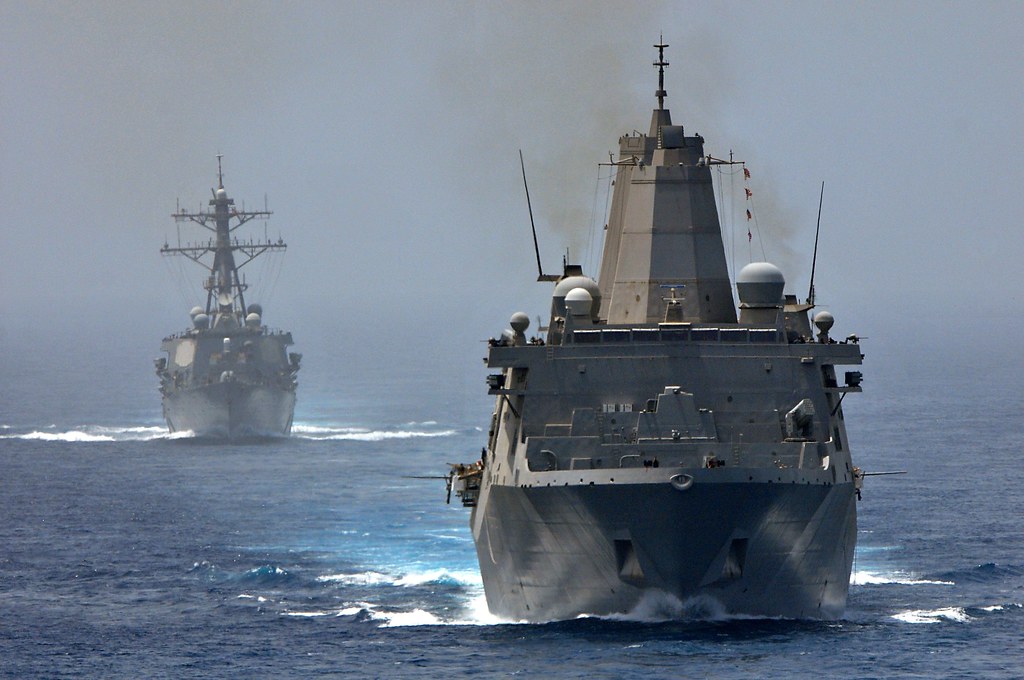Tanker tussle in the Strait of Hormuz
July 22, 2019 | Expert Insights

Background
The Strait of Hormuz plays a strategically important role in the US-Iran dispute. The narrow strait lies between the Gulf of Oman and the Persian Gulf and is a key passageway, generating a high volume of shipping traffic. It is particularly important because 20% of the world's traded oil passes through it. In fact, the US Energy Information Administration has called the Strait of Hormuz as the world's most important choke-point for oil transport.
The Strait of Malacca and the Suez Canal are also considered chokepoints. Approximately 17.2 million barrels of oil move through the Strait of Hormuz daily as compared to 11 million for the Strait of Malacca and 5 million for the Suez. The US has recently increased its naval presence in the Strait of Hormuz, following a series of tanker attacks in May and June. US officials believe that Iran orchestrated the attacks in retaliation to American sanctions on Iranian oil and the British seizure of an Iranian oil tanker.
The Strait of Hormuz has been a theatre of conflict in the past. During the Iran-Iraq war in the 1980s, both sides were engaged in the destruction of the other's merchant ships (primarily transporting oil) in what is known as the "Tanker War". The Tanker War led to over 400 civilian casualties, damage to hundreds of ships, and severe economic losses as a result of disrupted oil trade.
Analysis
On the 19th of July, two British-owned tankers were seized by the Iranian Revolutionary Guard Corps (IRGC). The first tanker, the Stena Impero, which was transporting oil, was surrounded by four Iranian vessels and a helicopter, before it was commandeered by military officials and taken to the Bandar Abbas Port. According to an Iranian news agency, the tanker was seized because it was in violation of the following three regulations: shutting down its GPS; going through the exit of the Strait of Hormuz instead of the entrance; and ignoring warnings. The owners of Stena Impero have reported that they are yet to establish contact with the seized boat with 23 personnel on board. The second tanker, the Medsar, was surrounded by ten speedboats and boarded by armed guards, but was later set free to continue its journey.
This incident comes a couple of weeks after an Iranian vessel, Grace 1, was seized near Gibraltar by Royal Marines who suspected that it was transporting oil to Syria in violation of EU sanctions. In a tit-for-tat scenario, Iranian boats attempted to seize a British oil tanker in the region. According to the Ministry of Defense, the attempt was unsuccessful because the boats were warned off by a nearby Royal Navy Ship. Iranian officials deny any such seizure attempt.
British foreign Secretary Jeremy Hunt said the seizure of the British tanker was "completely unacceptable" and that there will be "serious consequences" if Iran fails to release it. Despite escalating tensions, Britain is looking to solve this issue diplomatically and is not considering military options. Hunt has reached out to his Iranian counterpart Mohammad Javad Zarif, urging him to release the British vessel.
It remains unclear whether the seizure was in retaliation to the British seizure of Grace 1, or if the charges against the Stena Impero are legitimate. In a television interview, Penny Mordaunt, the British defense minister, claimed that the ship had actually been intercepted in Omani waters and that the seizure was a "hostile act". Until the issue is resolved, the British Government has advised shipping vessels to "stay out of the area." A decision was made by the British government to dispatch a second warship to the Gulf.
US President, Donald Trump offered his support to Britain and said that "The US will continue to work with our allies and partners to defend our security and interests against Iran's malign behavior." The US has recently increased its military presence in the region and will offer protection to vessels passing through the Strait of Hormuz to ensure freedom of maritime navigation.
Assessment
- Iran has the ability to close the Strait of Hormuz and seems to be subtly leveraging this in its dealings with Britain and the US, almost taunting them to take military action. However, we feel that military conflict in the Strait of Hormuz needs to be avoided at all costs. The oil trade through the region powers a large portion of the global economy and any type of military conflict could seriously threaten international oil supply. Moreover, since there is a global interest in keeping the Strait of Hormuz a safe and open passageway, other countries are likely to intervene militarily in case of any conflict, possibly escalating things further.
- Since Iranian officials seem less intimidated by Britain's second warship deployment, we think that negotiation might be the only way to de-escalate tensions in the Strait of Hormuz. Although Britain recently announced its plans to hold the Iranian tanker for another month, returning the tanker might help ease the situation and could persuade Iran to release the Stena Impero.
- We think it is unlikely that the United States is looking to establish a defense coalition with Britain against Iran. Several US allies are wary of Trump's Iran agenda and are trying hard to salvage what is left of the 2015 nuclear deal.
- The timing of recent escalation in tensions between Iran and Britain is rather unfortunate. The British political scene is somewhat in disarray following Theresa May's resignation amidst attempts to exit the European Union. We feel that Britain must carefully balance its foreign policy agenda between US and EU interests and might end up diplomatically isolated in the process.
Read more
Image Courtesy - Official U.S Navy Page








Comments